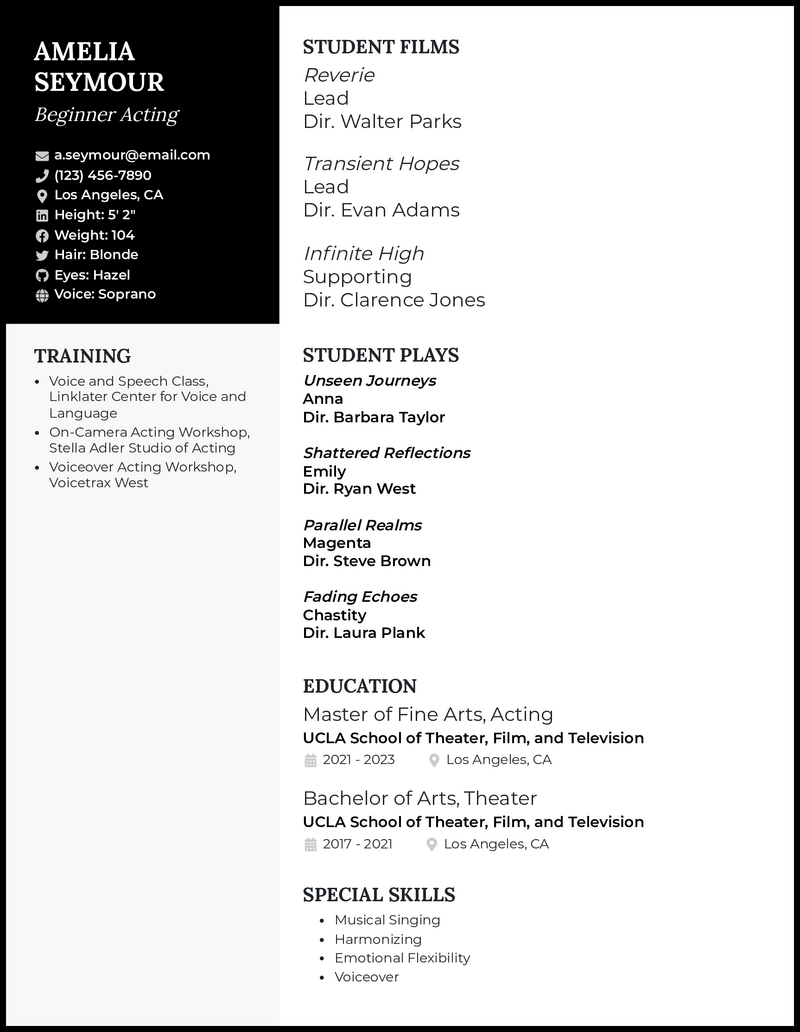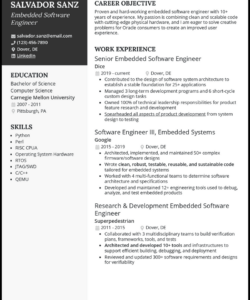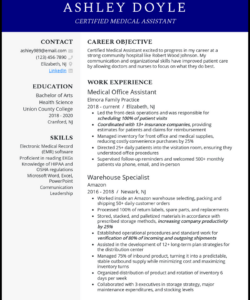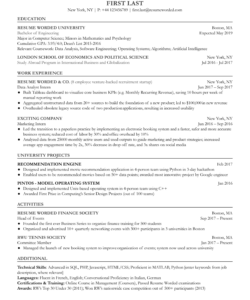It’s totally understandable if you’re just starting your acting journey and feel a bit lost when it comes to creating a resume. The common advice always seems to be about listing past credits, and if you don’t have any, it can feel like you’re stuck before you even begin. But here’s the good news: every single working actor started exactly where you are right now, with little to no experience.
The key isn’t to invent experience you don’t have, but rather to present your potential, training, and unique qualities in a professional, compelling way. A well-structured resume, even one for beginners, can open doors to auditions and opportunities. It’s about showcasing your commitment to the craft and highlighting what makes you, well, you.
Crafting Your First Acting Resume: What to Include
When you’re first stepping into the acting world, the idea of creating a resume might seem daunting, especially if your performance experience is limited to school plays or maybe even just a burning passion. Don’t fret! A strong beginners acting resume template no experience can actually be quite effective by focusing on your foundation, your unique attributes, and your willingness to learn and grow. Instead of thinking about what you haven’t done, let’s focus on what you can include to make a great first impression.

Your resume is essentially your professional introduction to casting directors and agents. It tells them who you are, what you look like, and what skills you bring to the table. Even without professional credits, you have valuable information to share. Think about any acting classes you’ve taken, workshops you’ve attended, or even relevant hobbies that showcase discipline and transferable skills. These elements are crucial for building a comprehensive profile.
Filling the Gaps: Essential Sections for Beginners
When you don’t have a long list of film or theater credits, you’ll want to emphasize other core sections. These are the pillars of a beginner’s resume:
- Contact Information: This is self-explanatory but vital. Include your professional name, phone number, and email address. If you have an agent or manager, their contact information goes here. Never put your home address.
- Physical Characteristics: Provide accurate details like your height, weight, hair color, and eye color. This helps casting directors visualize you for roles.
- Training: This is arguably the most important section for a beginner. List any acting classes (on-camera, scene study, improv, voice, movement), workshops, drama school attendance, or even high school drama programs. Include the name of the institution or instructor, the type of training, and the years attended.
- Special Skills: This section is your chance to shine and show off your unique talents. Think broadly! Can you play a musical instrument? Do you speak another language? Are you proficient in any sports (like stage combat, yoga, swimming, martial arts)? Do you have specific vocal talents (singing, accents)? Even things like valid driver’s license, juggling, or basic computer skills can be relevant for certain roles.
The goal here is to demonstrate that you are serious about your craft and actively working to develop your skills, even if you haven’t booked major roles yet. Every class, every workshop, every skill adds another layer to your professional profile and showcases your dedication to becoming a well-rounded performer.
Structuring Your Resume with a Beginners Acting Resume Template
Once you know what information you need to include, the next step is to organize it professionally. This is where a well-designed beginners acting resume template can be incredibly helpful. Templates provide a clean, standardized layout that makes your resume easy for casting directors to read and quickly digest. They ensure consistency in formatting and present your limited experience in the most impactful way possible, without making it look empty.
A good template will typically adhere to an industry-standard one-page format. For beginners, it’s almost always recommended to stick to a single page. This forces you to be concise and highlights your most relevant information without overwhelming the reader. While some templates might offer different visual styles, prioritize clarity and readability above all else. A cluttered or overly artistic resume can be distracting.
When adapting a template, remember to be honest and accurate. Never embellish or lie about your training or skills. Casting professionals are experienced and will quickly spot inconsistencies. Instead, focus on presenting your genuine self and what you do bring to the table. Even if it’s just a few workshops and some unique talents, that’s a foundation you can build upon.
Finally, always proofread your resume meticulously. Typos and grammatical errors can make you appear unprofessional and careless. Have a friend or mentor review it as well, as a fresh pair of eyes can often catch mistakes you’ve overlooked. Tailor your resume slightly for specific auditions if a particular skill or training is highly relevant to the role, but generally, keep your main template updated with your latest training and skills.
Creating your first acting resume without professional credits might seem like a hurdle, but it’s an important step in your acting career. By focusing on your training, special skills, and a professional presentation, you can create a compelling document that showcases your potential. It’s about demonstrating your passion and your readiness to learn and grow within the industry.
Remember that every single actor started exactly where you are. This resume isn’t just a list of past jobs; it’s a reflection of your commitment, your developing artistry, and the unique qualities you bring to the table. Embrace this process as the exciting beginning of your journey, and know that with dedication, your resume will undoubtedly grow alongside your experience.


